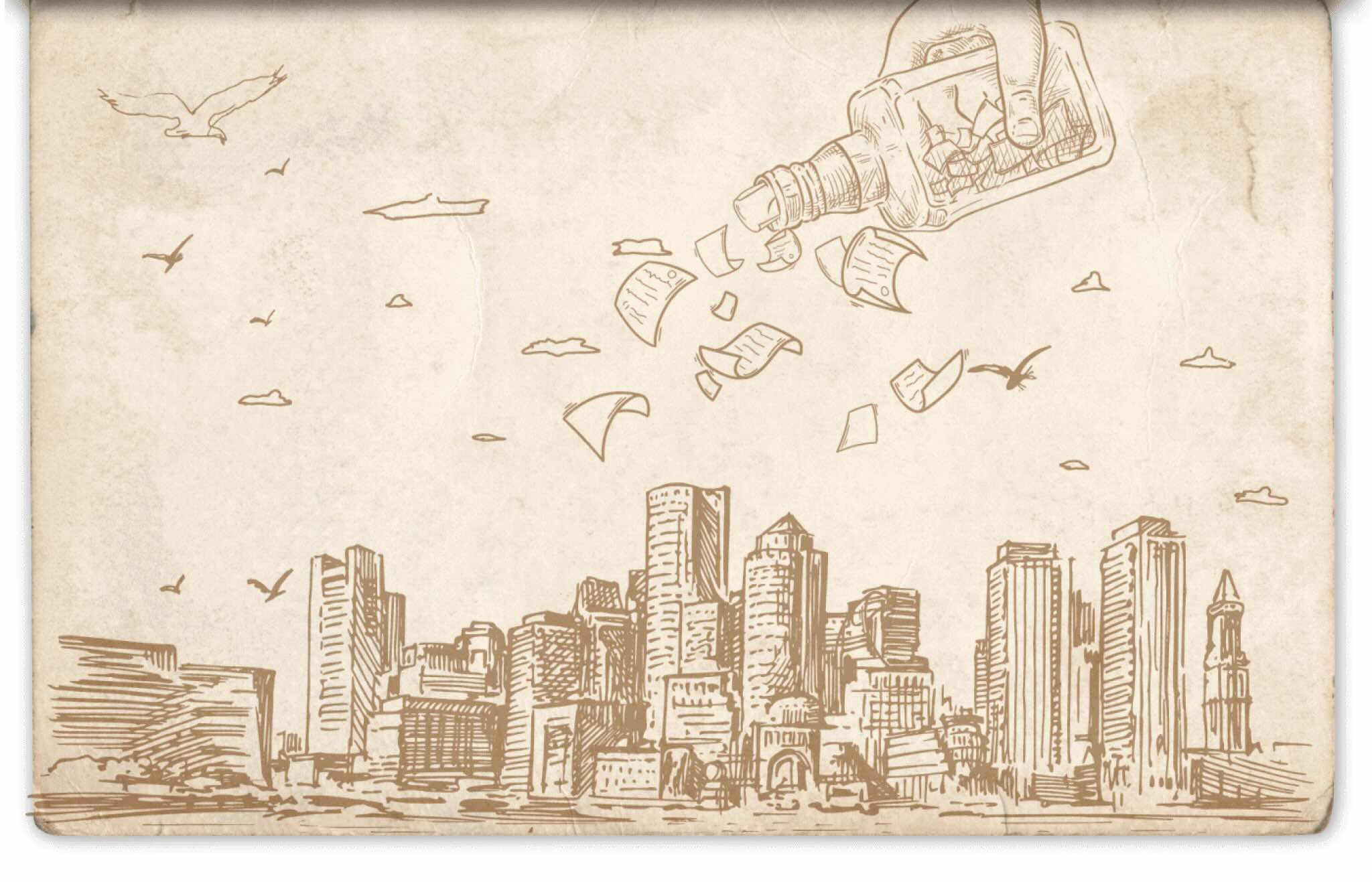
HIGH & DRY
A decade ago, Boston tried and failed to fix its broken liquor license system. Will this time be different?
Neighborhoods still languish in the wake of a 2014 law that created 70 new liquor licenses for the city. Now there’s a new push to give more people the privilege of serving alcohol in more corners of Boston.
The first in a series of stories about the consequences of Boston’s broken liquor license system.
It is a Friday evening, and the beer and wine are flowing at Bon Appetit, a Haitian restaurant on Blue Hill Avenue in Dorchester that won a coveted liquor license from the city nearly a decade ago. Just about every seat at the bar is taken, with the buzz of conviviality signaling the weekend is underway.
A half-mile down the road in Mattapan, the dinner crowd at another Haitian spot, Divine Merci, waxes and wanes. It’s one of the few places in the neighborhood where you can sit down and have a meal. The action is otherwise all at take-out joints, with cars double-parked up and down Blue Hill Avenue from Simco’s hot dog stand to Lani’s Pizza.
One crucial difference? That liquor license.
Bon Appetit has one. Divine Merci does not.
There’s a story behind that — a very Boston story.
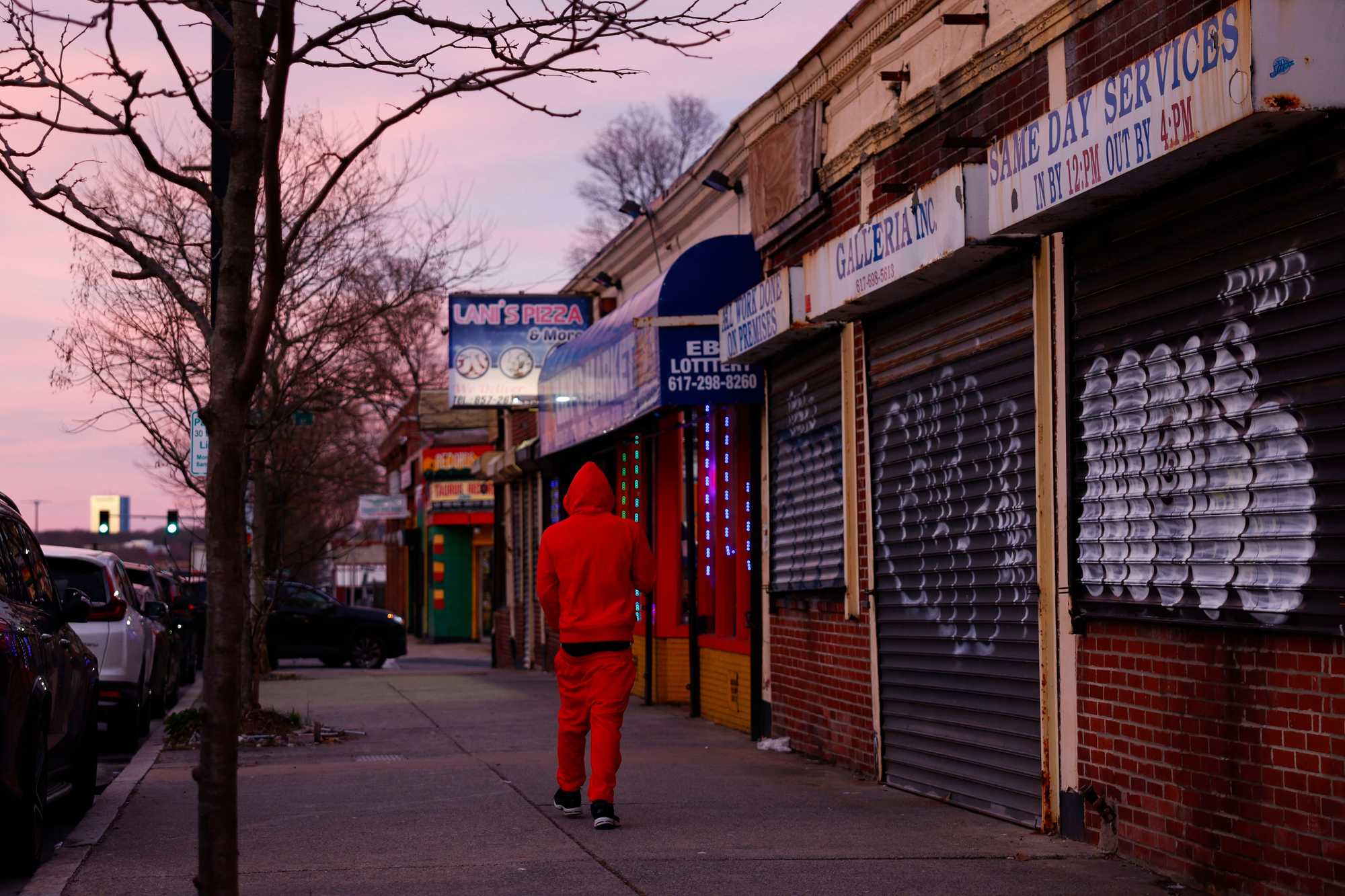
Marie Dessain, who runs Divine Merci with her husband, is well aware that their restaurant needs a license to compete, no matter how delectable their fried pork and plantains. But while Bon Appetit received one from a batch created by state lawmakers in 2014, there are no such licenses available in Mattapan. Dessain would need to buy one at a cost that could top more than a half million dollars.
“It would be good for the business,” she said. “Some customers are like, ‘I like the food here. I want to have a drink. Let’s go somewhere else.’”
To sit, eat dinner, and sip a glass of wine — it’s an everyday luxury that residents in Back Bay, Seaport, and many parts of Dorchester enjoy. But it’s unheard of in Mattapan, a predominantly Black neighborhood deprived of the economic vitality and sense of community that restaurants with alcohol can bring.
That 2014 legislation that created Bon Appetit’s liquor license and 69 others was hailed as the most ambitious effort to change the way alcohol is sold in Boston since Prohibition, a bid to boost struggling neighborhoods and help restaurateurs of color build wealth. Beyond the new licenses, it returned control of the Boston Licensing Board to the city by allowing the mayor, instead of the governor, to appoint its three members for the first time in a century.
The law has yielded some success stories like Bon Appetit. But a Globe analysis of newly available data found that the legislation fell far short of its lofty goals. The Boston liquor license system remains as arcane, expensive, and inaccessible as ever. And selling alcohol remains largely the preserve of the white, the wealthy, and the well connected.
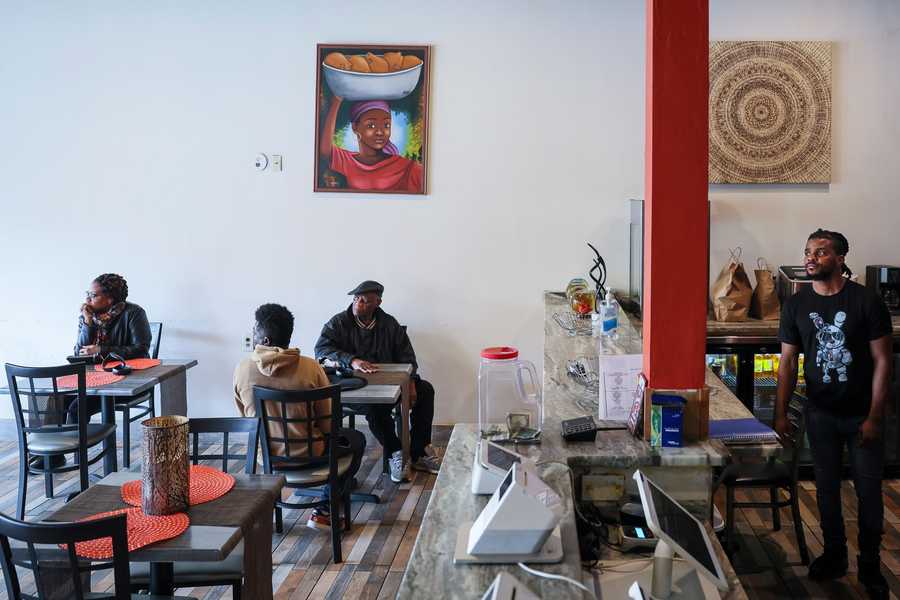
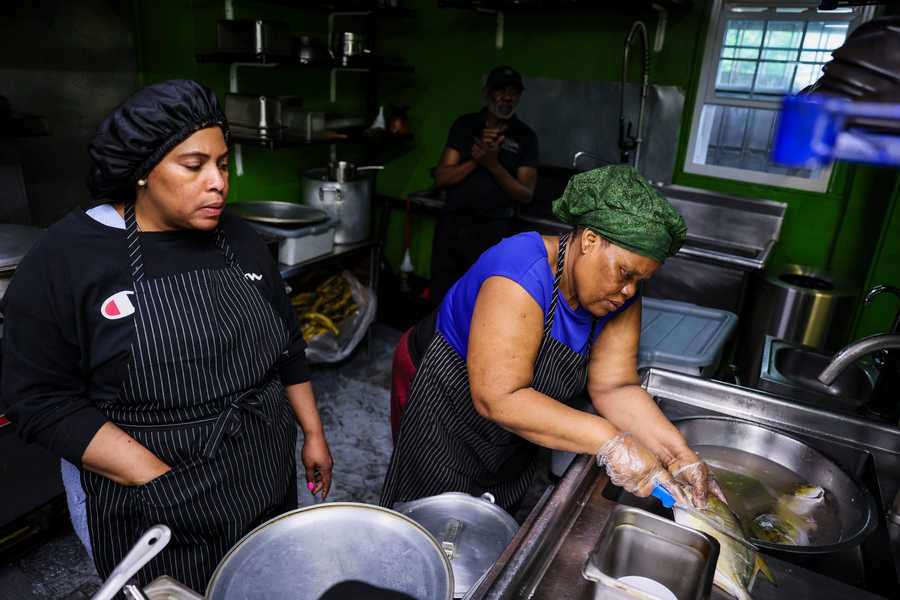
Kelly Mazile (right) waited for customers to come in at Divine Merci, a Haitian restaurant in Mattapan. Owner Marie Dessain (left) watched as Rosenie Cange prepared fish in lime juice. (Erin Clark/Globe Staff)
Critics of the 2014 effort said the city did not do enough to implement the spirit of the legislation, instead applying a first-come, first-serve approach that benefited veteran operators over small business owners of color and codified a system of haves and have-nots.
Now lawmakers are trying again, with a bill that would create 250 more licenses in Boston — the largest batch ever proposed — specifically aimed at lower-income communities and those of color. As debate heats up on Beacon Hill, one question looms large: Will this be the time Boston finally gets it right?
Without access to liquor licenses, chefs move out of Boston to open restaurants elsewhere. Nightlife suffers. Storefronts remain empty. Businesses do not start. In the low-margin and hypercompetitive restaurant industry, serving alcohol is critical to the bottom line.
Because of a state-imposed cap of around 1,200 liquor licenses in Boston, there are rarely any available for new restaurants, unless business owners purchase them from another place selling one off. These days, that costs about $600,000, a figure that has doubled over the past two decades.
It’s a system that favors chains and restaurants backed by deep-pocketed investors over independent operators, and monied neighborhoods over far-flung residential enclaves.
Look at the numbers, and the yawning gap between the dreams of 2014 and the reality now, between equity and the old ways, seems plain:
Not one of the new licenses created in 2014 landed in Mattapan. But many from the batch are now fueling nightlife in the well-to-do, restaurant-heavy sections of the city.
To cite three examples: Earls Kitchen and Bar, the international chain, secured a permit for its massive location at the Prudential Center; so did two Seaport establishments — Scorpion Bar, and Lolita Cocina and Tequila Bar, according to data from the Boston Licensing Board and state Alcoholic Beverages Control Commission.
Licenses also landed at two corporate hotel chains: Hilton Garden Inn in East Boston and Residence Inn by Marriott in the South End.
And in the restaurant-dense North End, three familiar eateries — Cantina Italiana, Mare Oyster Bar, and Monica’s Trattoria — capitalized on the law’s largesse to upgrade from serving only beer and wine to more profitable full bars stocked with spirits.
But the original intent of the law went unrealized. The Globe review found that less than a fourth of the 70 new licenses are held by Black, Latino, or Asian owners.
As Boston tries again, new legislation would allocate five new licenses a year for five years to each of 10 ZIP codes spanning Roxbury, Roslindale, Mattapan, Hyde Park, West Roxbury, East Boston, and large swaths of Dorchester — generally the places with the fewest licenses today.
“We thought we were doing the right thing, and we didn’t realize all the unintended consequences,” said state Representative Russell Holmes, a Mattapan Democrat who championed the 2014 legislation. “We won’t make the same mistakes again.”
Come 6 p.m., seats can be hard to come by at The Quiet Few, an unassuming East Boston bar with its own house-made whiskey. Fries are served in abundance alongside trivia matches and Celtics games, and the shuffleboard table is alive with the shouts of competition. In the warmer months, tables loaded with cocktails and burgers line Sumner Street.
“We’re lucky,” owner Josh Weinstein said, “because we’re busy pretty often.”
Its triumph reflects one of the bright spots of the 2014 bill. The law doled out nine licenses in East Boston, at a time when a new wave of downtown workers and students began arriving in the traditionally working-class neighborhood across the harbor. Many landed at new restaurants — The Quiet Few, Cunard Tavern, Reel House — that would have not opened, or flourished as they have, without a steeply discounted permit to sell alcohol. Weinstein, too, credits the abundance of liquor licenses around Maverick Square as the major force behind its exploding nightlife scene.
Advertisement
Residents from the towering waterfront developments now meander after dark near Tall Ship and The Smoke Shop, dipping into MIDA for pasta primavera and cabernet. Tourists nosh on noodles at Cafe Iterum.
“The businesses in this area are working together to create something engaging and intimate for this community,” Weinstein said. “The liquor licenses were an integral part of that.”
Other enclaves saw similar benefits: Dorchester, the city’s largest neighborhood, added 20 permits from the 2014 batch, including five that currently enliven a two-block stretch of Lower Mills near the Milton border. Roxbury landed eight. Across the city, the decade-old licenses have supported a crop of diverse, budding restaurants — Nepalese, Vietnamese, and Colombian.
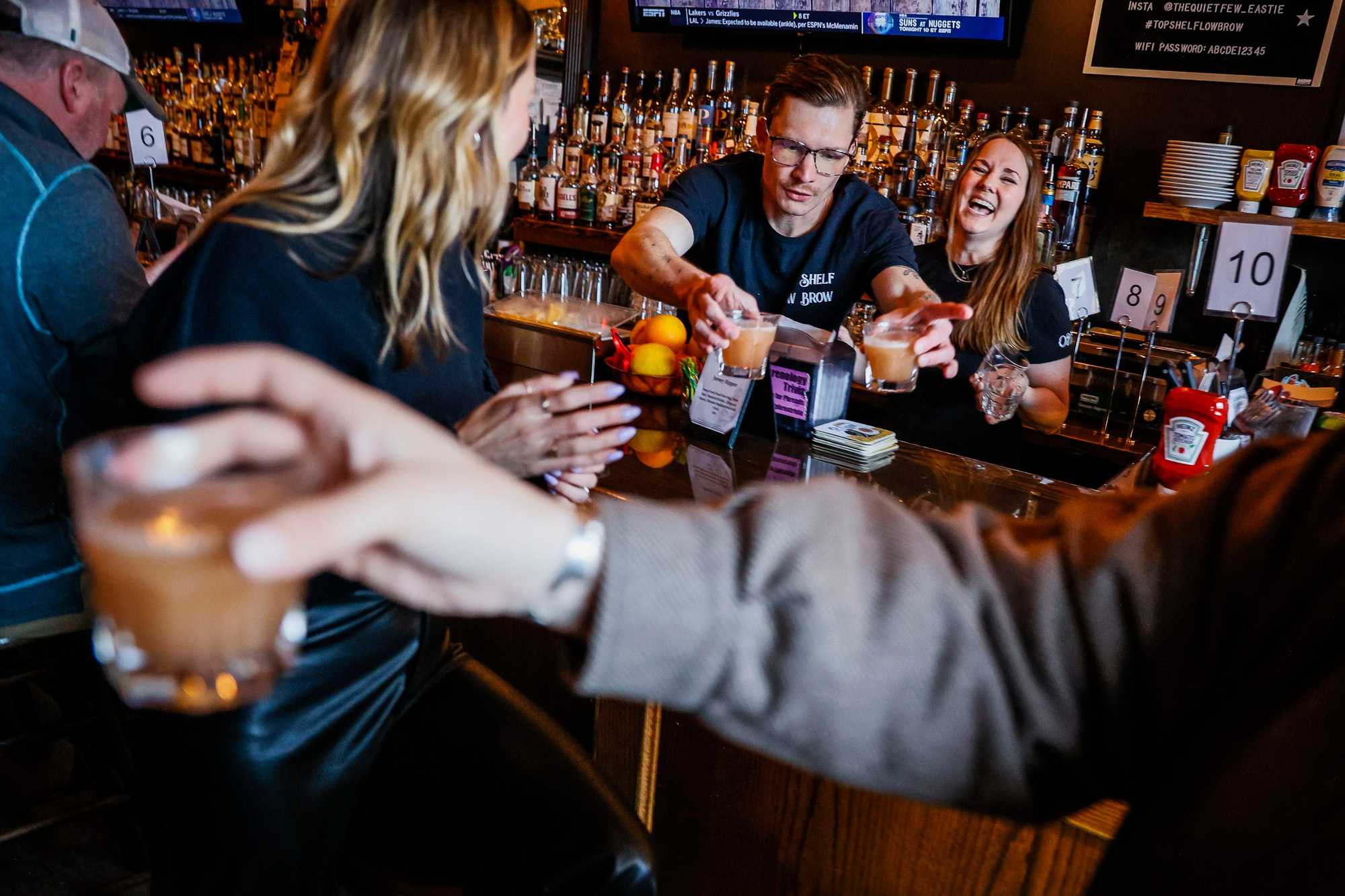
But the 2014 law ended up providing only short-term relief to a long-term problem: scarcity by design.
The Boston licensing process was built, literally, to restrict the flow of alcohol. When Prohibition ended in 1933, the Yankees who ran the Legislature did not trust the Irish who ruled the city. Beacon Hill limited the number of licenses available in towns across the Commonwealth, setting caps in many communities. Most places have not hit that limit, meaning they can still hand out permits directly to restaurants for a few thousand dollars and an annual fee.
But in Boston, demand caught up to supply after the city hit its cap around 2005. From there the shortage only worsened, as a slew of businesses opened in the newly built Seaport. The resale market flourished with restaurants selling their licenses for huge sums.
The first significant effort to fix the system came in 2006, when Mayor Thomas M. Menino lobbied state lawmakers to increase the number of licenses in Boston. They created 55 permits and the concept of “restricted licenses,” which are limited to certain neighborhoods and not eligible to be bought or sold. Then in 2013 came a radical proposal from City Councilor Ayanna Pressley to have the state eliminate the liquor license cap in Boston altogether and give the city power over the Licensing Board.
It could have transformed the system. But on Beacon Hill, the proposal was dead on arrival, according to several people who worked on the issue at the time. The Legislature famously despises giving up its power, and eliminating the cap would have gifted Boston control of a key lever of its economy.
And of course, the system as designed has a powerful built-in constituency: businesses that currently hold licenses to pour alcohol, many of whom paid handsomely for the privilege. Some worry that a massive expansion, or ending the cap, would devalue their investment and flood the market with competition. They can pose a stubborn resistance to bold reform.
Still, in 2014, Pressley’s advocacy stirred a groundswell of support that proved impossible to ignore. One key ally: newly elected Mayor Martin J. Walsh, a former state representative with friends on Beacon Hill. The Legislature went to work incorporating portions of the proposal into the economic development bill.
In the end, the city gained control of the Licensing Board and received 70 new licenses — 60 restricted for neighborhoods that had fewer existing permits, the other 10 “unrestricted” for use anywhere in Boston.
Proponents of the 2014 bill hoped the licenses would be distributed in an egalitarian fashion to fill out commercial districts short on places for after-work drinks and to seed restaurants in underserved neighborhoods.
But that is not what happened.
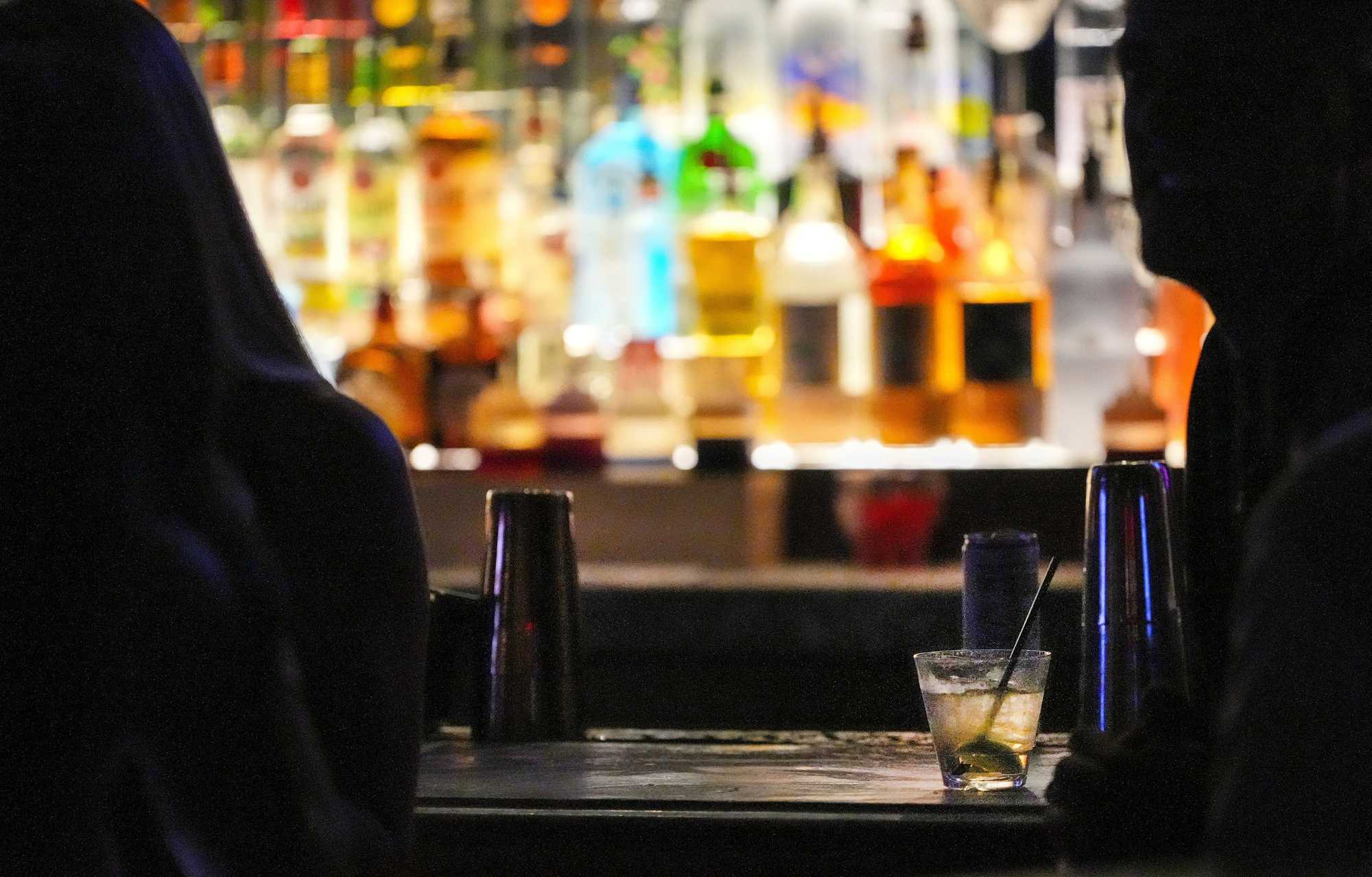
Last-minute political horse-trading led to confusion. While the legislation is credited with creating 75 licenses, only 70 actually materialized, the Boston Licensing Board and state Alcoholic Beverages Control Commission confirmed.
Of those 70, the 10 unrestricted licenses, in particular, set off a frenzy. While any license to sell booze is good for a restaurant’s bottom line, an unrestricted license is a golden ticket. Not only can these licenses be used anywhere in the city, their high resale value means they can be used as collateral for loans from banks and landlords.
As the Licensing Board prepared to hand out the unrestricted licenses in 2015, word spread quickly in the close-knit circle of liquor license lawyers and their restaurant clients to get applications in fast before the board began its deliberations.
Ed Kane, co-owner of Big Night and one of the barons of Boston nightlife, understood what was at stake. He was used to paying six-figure sums for licenses for his spots in Back Bay and Downtown Crossing. A free permit was unheard of.
“I remember it was like, ‘Oh my God, they’re going to give away 10 liquor licenses,’” Kane recalled.
At the time, Kane was building out Scorpion Bar & The Grand, a 12,600-square-foot, Vegas-style nightclub in the Seaport. When the unrestricted licenses became available, he had just days to prepare his application and strategize with veteran liquor license attorney Kristen Scanlon to pitch the new spot as not just another restaurant, but a distinctive venue that could offer dancing and VIP lounges to bring nightlife to an area known for gleaming, glassy office buildings and luxury condos.
“I didn’t think I was going to get one. I didn’t think I really had any inside track,” Kane said. “You never think you’re going to win the lottery.”
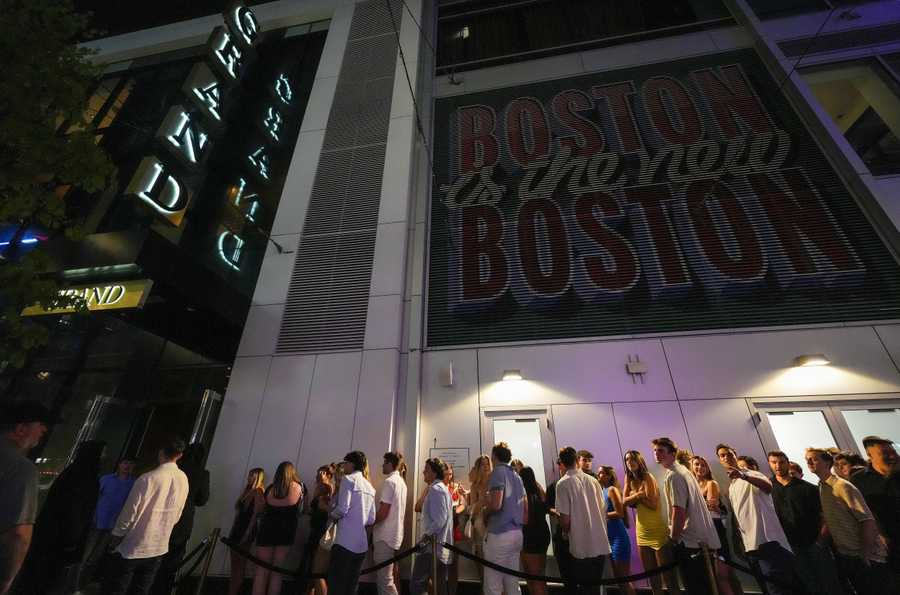
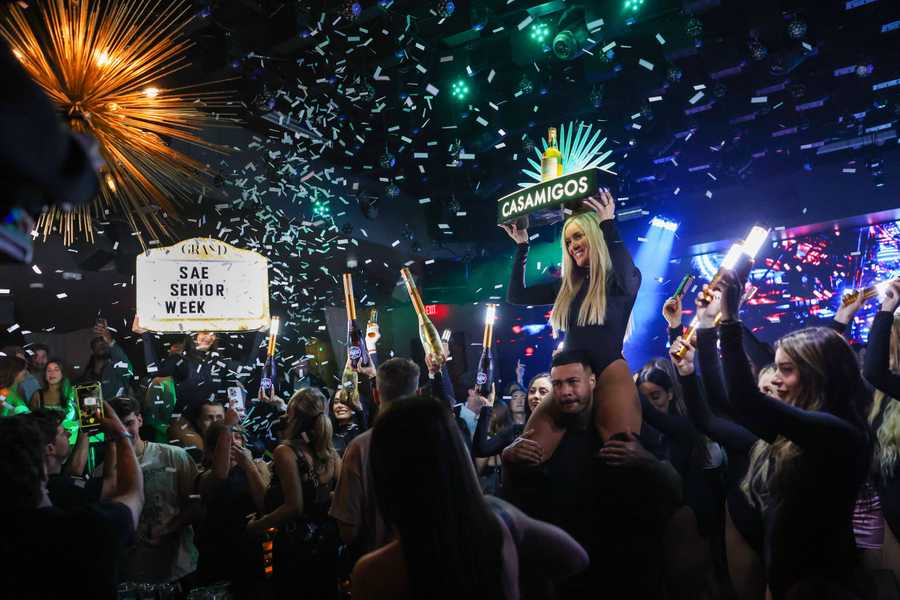
The Scorpion Bar & the Grand in the Seaport District received one of the 10 unrestricted licenses created by the 2014 legislation. (Barry Chin/Globe Staff)
But he did, as did other restaurateurs with the wherewithal and City Hall savvy to move fast. The most valuable licenses ended up in the least diverse neighborhoods, including Back Bay and Beacon Hill. The Globe found that of the 10 unrestricted liquor licenses, only one went to a restaurant owned by a person of color: the South End sushi place, Fuji at Ink Block.
What’s more, those who were able to secure a permit from the 2014 batch held onto them. Only 10 of the 70 have changed hands since their original issuance, meaning the benefits of the permits have not extended to up and coming restaurateurs.
And there has been little movement of the restricted licenses to new parts of town, because of a quirk in the 2014 legislation that requires most of these permits to stay in the same neighborhood where they were originally issued. That’s a big reason it has been hard for Mattapan to get a license, because the neighborhood never got one initially.
In a statement, Pressley, who is now a US representative, said the positive impact of the legislation that was a hallmark of her time in City Hall “is undeniable,” but that there is more to be done.
“While the compromise that passed the Legislature was certainly not perfect, this legislation has been a game-changer for restaurants and the communities they call home,” said Pressley. “It established a new floor for future reforms to the liquor license system, and I hope policy makers will build upon it going forward.”
Every few years, lawmakers point out how expensive Boston’s liquor license system is, how convoluted it is, and how it hampers Boston from becoming “fun.” Every few years, they return to the drawing board and come up short.
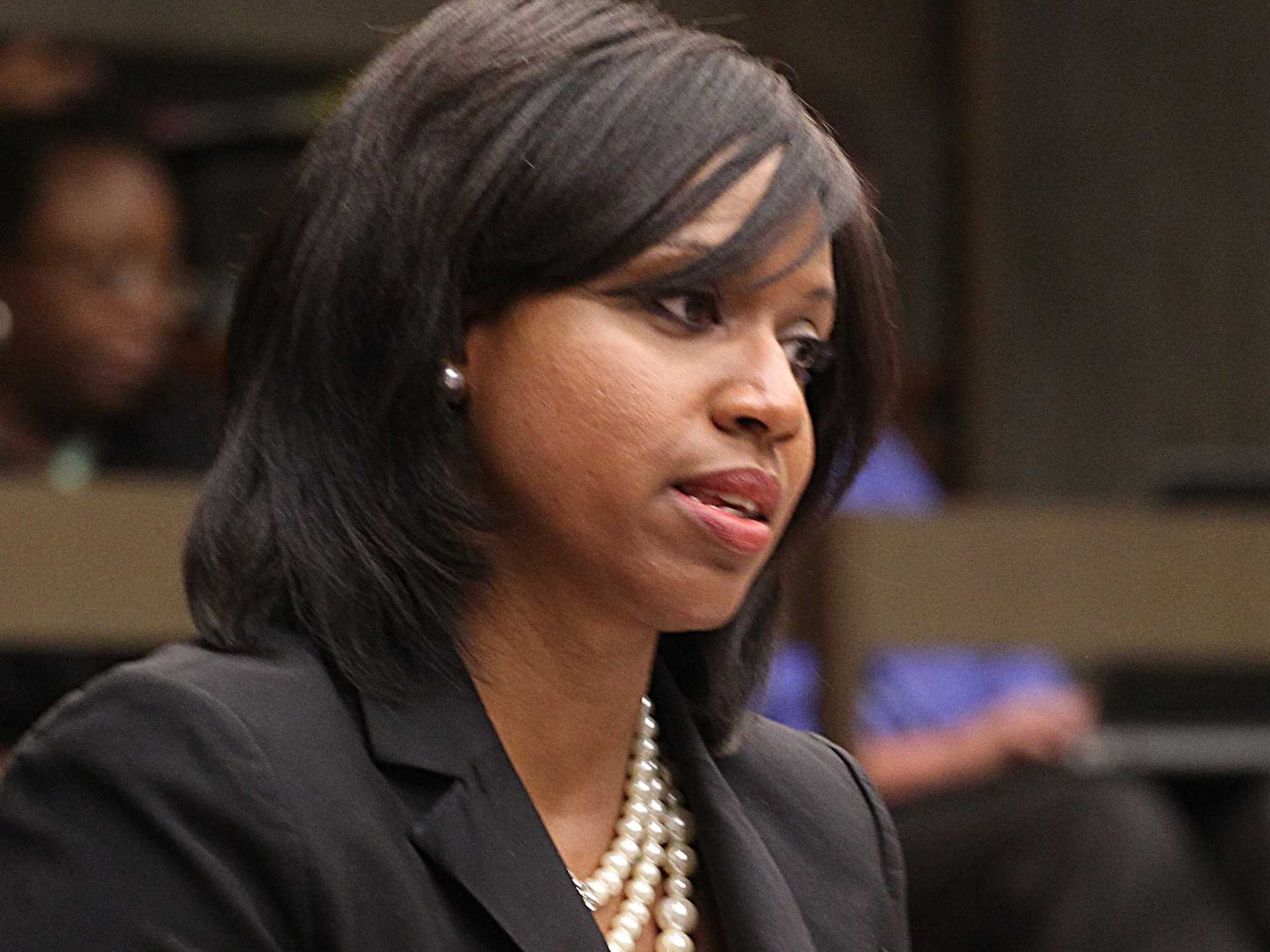
Three years after the 2014 bill, Pressley and Walsh tried to get 152 new licenses out of Beacon Hill. That proposal fizzled.
This time, it’s Boston City Councilor Brian Worrell’s turn to try. He authored a home-rule petition that became the bill that his brother and Dorchester state representative, Chris Worrell, has carried to the State House for consideration this spring.
As written, it would allocate five new licenses a year for five years to each of 10 designated ZIP codes. By 2030, those parts of town would possess more than twice as many liquor licenses as they do now, and Worrell hopes it will bring a boost to neighborhoods that could use one.
“At the end of the day, I hope to see a whole line of mom-and-pop shops with liquor licenses. That’s my vision,” Brian Worrell said. “This is an undeniable opportunity to grow the cultural scene in these neighborhoods and attract tourism dollars like never before.”
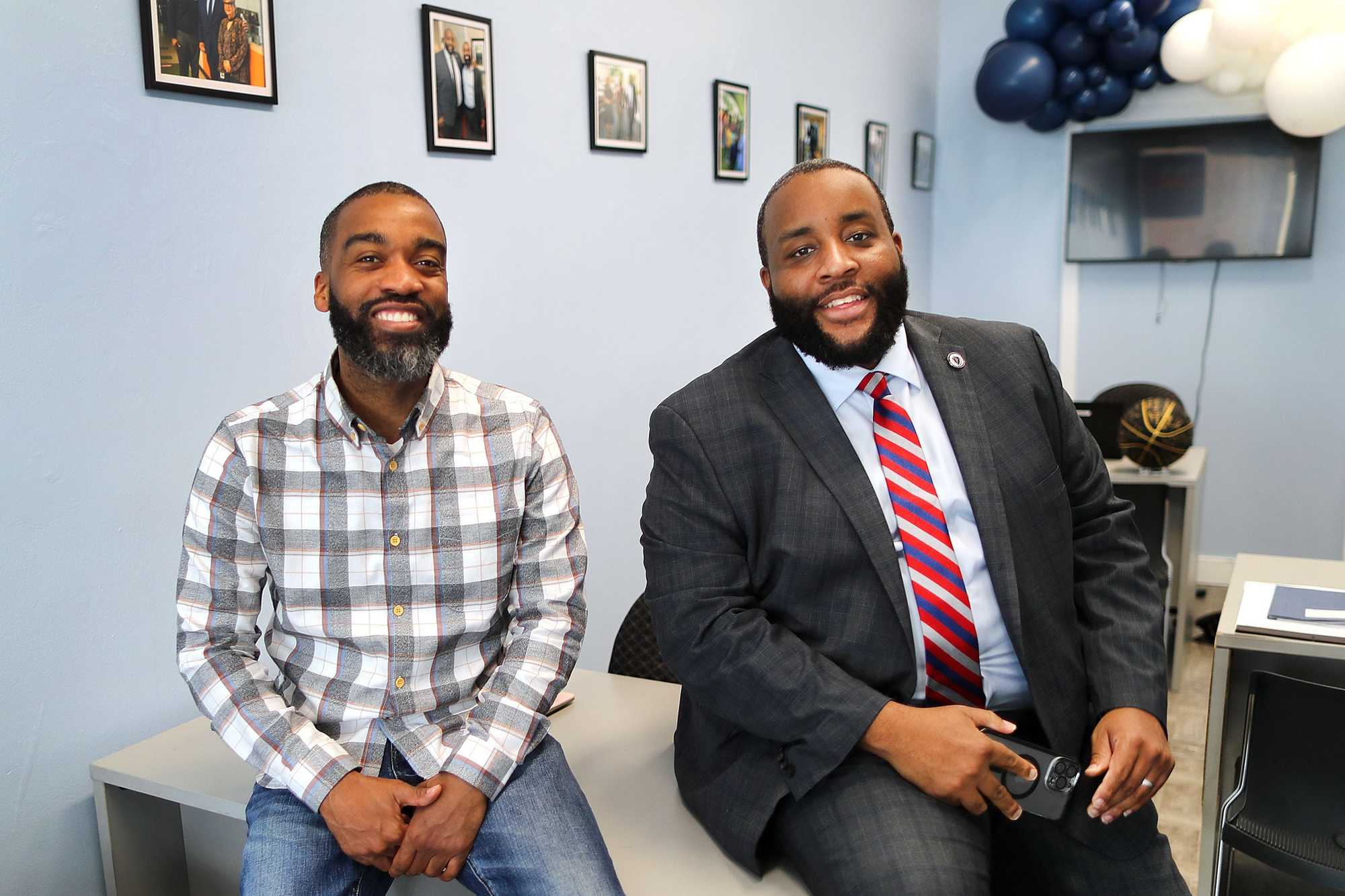
These sort of neighborhood-restricted licenses have their limitations. But for business owners of color who were able to get one of the restricted licenses out of the 2014 batch, the impact has been life changing, said Aleksandr Bakhrakh, manager of anoush’ella, a Lebanese outpost in a quieter part of the South End that received a license eight years ago.
“We could not do what we do without it. For the longest time, [the liquor license] was something that you had to take on a gigantic loan for,” he said. “We were given an opportunity, and we snatched it.”
Advertisement
Worrell’s plan is one way forward. But there is another, Pressley’s original proposal to eliminate the cap altogether. That, many agree, would level the playing field. But for now, that idea appears to be a nonstarter. State Representative Aaron Michlewitz, whose district includes the North End and parts of downtown and who chairs the powerful House Ways and Means Committee, said he’s hopeful something will pass this session, but has no plans to touch the cap.
“I don’t see the need to lift it,” he said.
Others wonder whether restricted licenses, as the bill proposes, may actually exacerbate inequities. Malia Lazu, a community organizer who worked with Pressley on liquor license reform a decade ago, has watched in frustration as established, and predominately white, restaurant owners profit from the current system, while upstarts in the city’s poorer neighborhoods are handed a second-class license. She worries Worrell’s bill, however well intentioned, will just be more of the same.
“That’s a solution that centers white privilege,” said Lazu, now a lecturer at MIT Sloan School of Management. “We should begrudgingly use these licenses to build restaurants, but we should not be happy.”
City officials are already preparing for and actively encouraging businesses owned by women and people of color to seek licenses from the upcoming batch, should it be approved. One challenge, said Boston Licensing Board chairwoman Kathleen Joyce, is to attract applicants from neighborhoods that have rarely won licenses in the past.
“If there are no applications for Mattapan, then there are no licenses that we can give there,” said Joyce, who was appointed by Walsh in 2018 after most of the new licenses were already given out. “So we need to encourage people to take those economic risks and to invest in those neighborhoods that don’t have restaurants.”
Frank Poindexter, general manager of Wally’s Jazz Club, knows these are risks worth taking. He is one of a few business owners of color who has long benefited from the city’s liquor license policies. His family has held a liquor license for eight decades, ever since his grandfather founded the South End institution in 1947. Other businesses should get the same opportunity, he said.
People “want to be able to go to different neighborhoods and get to know the city on a deeper level,” he said. “If we don’t provide any opportunities in these areas, we’re going to maintain a bad reputation.”
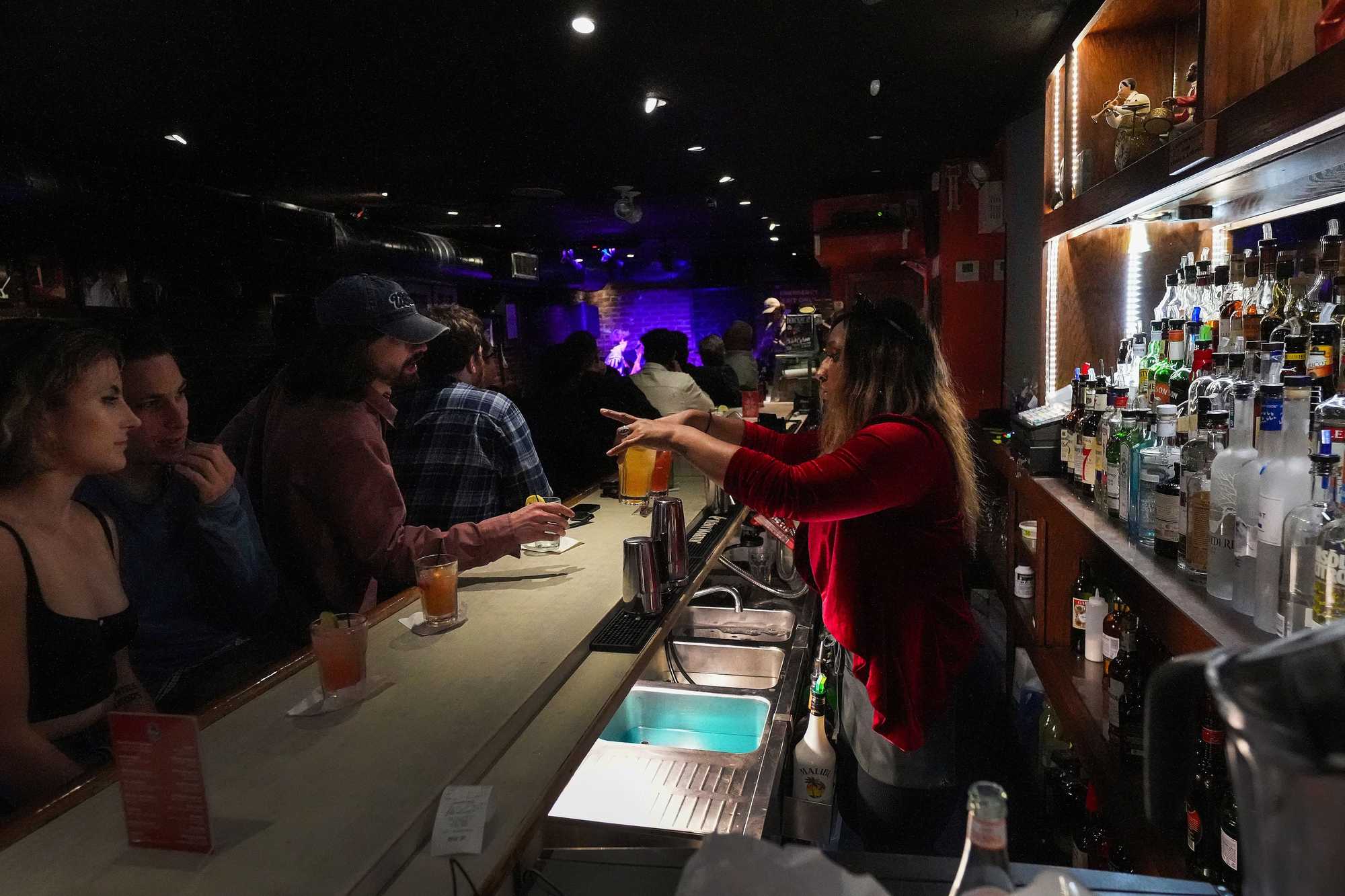
Design and development by Kirkland An.
© 2024 Boston Globe Media Partners, LLC


